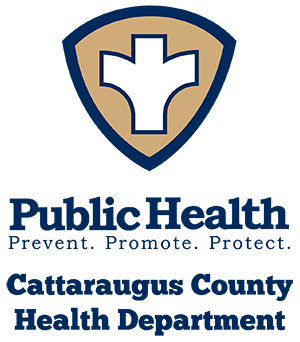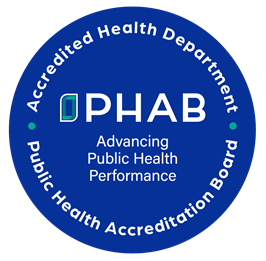Many people think that STDs (sexually transmitted diseases) are a harmless "fact of life." Since most STDs can be cured, people think, "Doctors give you medicine and that's the end of it, right?" Well, not quite! Having an STD can increase your chances of getting HIV, the virus that fuses AIDS.
What are STDs?
Some common STDs are chlamydia, gonorrhea, trichomoniasis, syphilis, herpes, and HPV (genital warts). Sometimes STDs are called "VD". You can get an STD if you have sex (ANY kind of sex - vaginal, anal or oral) without a condom with someone who has an STD.
- If you have an STD, you might have: burning, itching or sores in or on your vagina, penis, rectum or mouth;
- fluids leaking from your vagina or penis; or
- lower stomach pain.
But there may be no signs at all. You can have an STD and not even know it!
The good news is that doctors and clinics can give you medicine to treat or cure most STDs. But, if you are not treated, an STD can cause:
- pelvic inflammatory disease (PID)
- sterility - not being able to get pregnant;
- illness or even death for an infant whose mother had an STD when she was pregnant;
- serious illnesses, and diseases like blindness, heart disease or cancer, some of which could lead to death; or
- increased risk of getting HIV.
What is HIV (Human Immunodeficiency Virus)?
HIV is the virus that causes AIDS (Acquired Immune Deficiency Syndrome). HIV is spread by having vaginal, anal or oral sex without a condom with someone who has HIV. You can also get HIV if you share drug "works" (such as needles and syringes) with someone who has HIV.
HIV attacks the body's immune system and makes it weak. A person with HIV has AIDS when his/her body's immune system becomes too weak to fight diseases. There are medicines that can help people with HIV, but there is no cure for HIV or AIDS.
What's the Link Between HIV and STDs?
HIV and STDs are spread in the same ways.
You can get HIV or an STD by having sex without a condom with a person who is already infected. HIV and some STDs can be passed from a mother to her baby while she is pregnant, during birth or through breast feeding. HIV and some STDs, can also be spread by sharing drug "works" with someone who has HIV or an STD.
If you have an STD it's easier for you to get HIV.
Having an STD changes the cells lining the vagina, penis, rectum or mouth. This makes it easier for HIV to enter your body. If you already have an STD, you are MORE likely to get infected with HIV if you have sex with someone who has HIV and you don't use a condom.
You're more likely to get HIV if your partner has HIV and an STD.
People with both HIV and an STD have more HIV in their semen (cum) or vaginal fluid. This makes it easier for a person with an STD or HIV to give the virus to others when having sex without a condom.
Remember, many people who have HIV don't know it. It can take many years for symptoms to show up. That is why it is so important to use condoms during sex, or to not have sex at all.
What puts you at risk for STDs and HIV?
You're at risk if you:
- Have sex (any kind of sex-vaginal, anal, or oral) without using a condom, with someone who is infected.
- Share needles or works to shoot drugs or for piercing or tattooing.
- Have had an STD.
- Have more than one sex partner.
- Are under the influence of drugs and alcohol.
How can you protect yourself from HIV and STDs?
- Avoid or put off having sex. If you do have sex, use a male latex or female condom every time.
- Talk with your partner about HIV And STDs.
- Don't share drug "works."
- Get STD and HIV counseling and testing.
To find out if you might have an STD, visit your doctor or clinic as soon as you can.
If you get an STD:
- Take all the medicine your doctor gives you, even after you begin to feel better.
- Get tested for HIV and learn how to protect yourself.
- Ask all of your partners to be tested and treated for STDs and HIV.
- Ask your doctor about regular testing for STDs.
Learn more
To learn more about STDs and HIV and testing services, call any of these numbers. All calls are free and confidential:
For HIV/AIDS information and the location of anonymous and confidential HIV testing sites near you, call:
- New York State HIV/ AIDS Information Hotline: 1-800-541-2437
- New York State Spanish HIV/AIDS Hotline: 1-800-233-7432
- New York State Deaf HIV/AIDS Hotline (TDD): 1-800-369-2437
- New York State HIV Counseling Hotline: 1-800-872-2777
- New York City HIV/AIDS Hotline: 1-800-825-5448
- CDR National AIDS Hotline: 1-800-342-2437
- TTY: 1-800-243-7889
You can also find Anonymous HIV Counseling and Testing sites near you online at www.health.state.ny.us/nysdoh/aids/
For STD information and testing sites near you, call:
- CDC National STD Hotline 1-800-227-8922
- New York City STD Hotline (212) 427-5120
- Your local health department. Cattaraugus County Department of Health's Hotline 1-800-251-2584
Information and referrals to help notify a partner/spouse of their risk for HIV, call:
- New York State PartNer Assistance Program 1-800-541-2437
- New York City (Contact Notification Assistance Program) 212-693-1419
Local Assistance
For local assistance please contact any of the Cattaraugus County Reproductive Health Offices.


